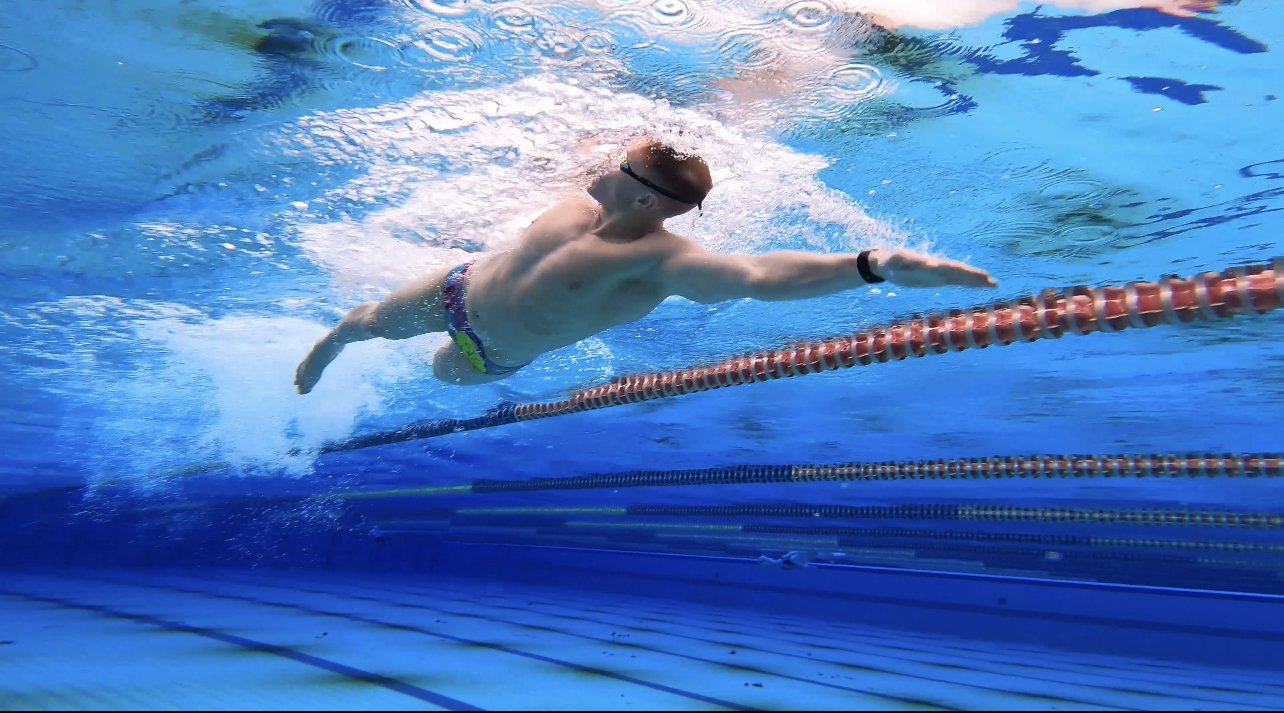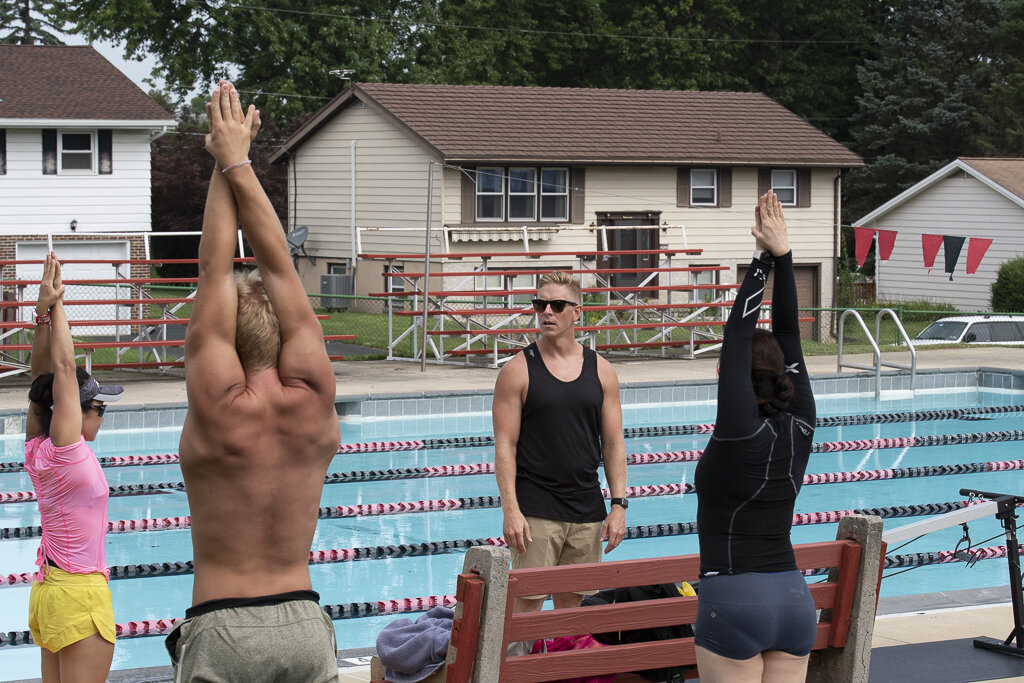Age is Just a Number: Mastering Swimming at Any Age
/Walk onto any pool deck at a Masters meet, and you’ll see it: age-groupers in their 40s, 50s, even 70s – goggles on, ready to race. For many, the question lingers: Is it too late to start competitive swimming? My answer, after over two decades coaching high school, collegiate, and Masters athletes, is simple – not even close.
Swimming rewards consistency, technique, and smart training. And while most elite swimmers begin early, that doesn’t mean late starters are left behind. In fact, with the right plan, older swimmers can improve well beyond what they imagined possible.
Dan Daly Swim Coaching – Evidence-Based. Technique-First. Results-Driven.
What Age Do Olympic Swimmers Start Training?
Most Olympians dive in young – many begin formal swim training between ages 6 and 10, with structured club practice and competition starting around age 8 or 9. By their teen years, these athletes are often training twice a day.
But here’s the real insight: while early exposure builds a technical base, long-term success depends on sustained development – not just a head start. That’s why swimmers who start later, or return after a break, can still reach elite levels if they train smart and stay consistent.
Is It Too Late to Start Competitive Swimming?
No. I’ve coached swimmers who joined their first swim team in their 30s, and they’ve gone on to race at Nationals and beyond. One even swam her first 200 IM at age 44 – and PRed in every stroke leg.
Whether you’re 25 or 65, it’s never too late to start competing. Your improvement curve might look different from a teenager’s, but with focus on technique, dryland strength, and recovery, results follow.
how to become olympic swimmer
Inspirational Stories: How to Become an Olympic Swimmer
Take, for example, Dara Torres, who at the age of 41, not only qualified for the Olympics but also won three silver medals. Anthony Ervin, another remarkable athlete, made a stunning comeback to win gold in the 50m freestyle at the 2016 Rio Olympics at the age of 35 and continued to compete at a high level into his 40s. Nicholas Santos, at 42, won the men's 50m butterfly at the 2022 FINA World Short Course Championships, becoming the oldest swimmer to achieve this feat.
Equally impressive is Gabrielle Rose, who at 46 secured a place in the 2024 U.S. Olympic Swimming Trials in Indianapolis, the same city where she made the Olympic team two decades earlier in 2000. Her participation marks her as the oldest swimmer in the Olympic Trials since at least 2004, if not in the entirety of modern swimming history. And let's not forget the incredible Japanese swimmer Tsutomu Nakano, who at 80, set a record in the 200m backstroke. These athletes shatter the age barrier, proving that with dedication, swimming performance can be maintained or even improved with age.
| Swimmer | Age | Achievement |
|---|---|---|
| Dara Torres | 41 | Won three Olympic silver medals |
| Anthony Ervin | 35 | Reclaimed Olympic gold in the 50m freestyle |
| Gabrielle Rose | 46 | Qualified for the 2024 U.S. Olympic Trials, 20 years after her last Olympic appearance |
| Nicholas Santos | 42 | Still sprinting world-class butterfly and winning medals |
| Tsutomu Nakano | 80 | Set a Masters world record in the 200m backstroke |
What do these swimmers have in common? A relentless commitment to refining their craft, prioritizing recovery, and embracing age as an advantage – not a limitation.
Discover key tips and strategies for achieving the perfect freestyle technique to enhance your efficiency and speed in the water.
Training Focus for Swimmers Over 35
As we age, our training priorities shift. VO₂ max and peak muscle power may taper slightly, but here’s the good news: technique, strength, and speed can still improve – often dramatically.
1. Strength and Power in the Gym
After 35, maintaining lean muscle mass becomes a priority. Strength training supports better starts, turns, and stroke propulsion.
Dryland staples for master swimmers:
Deadlifts and squats for lower-body power
Pull-ups and overhead presses for upper-body drive
Core training for streamline and body control
👉 Want a personalized dryland program for your goals? Start here
2. Speed and Goal-Pace Work in the Pool
Long slow sets have their place – but if you’re aiming to race faster, goal-pace training is key. Think short, race-specific intervals with adequate rest to maximize speed output.
Example set:
8x50 at 100 race pace on 1:20
Focus on maintaining stroke rate, streamline, and clean turns.
Technique Over Everything
At this stage, technical efficiency becomes your greatest ally. Even small tweaks in mechanics can yield huge returns – especially for swimmers returning to the sport or shifting from fitness to competition.
I recommend video analysis every few months. Most swimmers are surprised by what they see – and how quickly corrections pay off.
💡 Check out this breakdown: How to Analyze Your Stroke
Video analysis of swimming
Smarter Programming: Training + Recovery = Results
Recovery deserves just as much attention as training. In master athletes, adaptation happens in the space between sessions, not just during them.
Tips for older swimmers:
Prioritize quality over quantity
Use active recovery (light swimming, mobility, stretching)
Monitor sleep, hydration, and stress
Schedule one true rest day each week
Overtraining is still the #1 reason I see plateaus in swimmers over 40.
What Age Do Swimmers Peak?
There’s no universal answer. Sprinters may peak in their mid-to-late 20s, while distance swimmers often excel well into their 30s. For Masters athletes, I’ve seen technical peak in the 40s and endurance peak in the 50s.
Your “peak” is less about age – and more about how well your training matches your body’s needs.
The Role of Community and Coaching
Swimming is better with teammates. Masters programs across the U.S. offer group training, accountability, and camaraderie – and can help keep motivation high even on tough weeks.
A good coach? Even better. I’ve worked with Masters swimmers who plateaued for years – then dropped 5 seconds in a 100 freestyle just by changing race strategy and timing their taper right.
Mindset and Motivation: The Long Game
The biggest wins in Masters swimming aren’t always measured on the stopwatch. They’re about energy, confidence, community, and the joy of mastering a skill most people never revisit past childhood.
Set clear but flexible goals, celebrate small victories, and remember – it’s not just about medals. It’s about movement, longevity, and passion for the sport.
Video analysis is a powerful tool in this area. It allows swimmers to visually assess their technique and make adjustments in way that previously was not available two decades ago. Even small changes in stroke mechanics can lead to reduced resistance and increased propulsion.
Nutrition and Hydration
Nutrition and hydration play a pivotal role in a swimmer's performance at any age. A balanced diet rich in protein, carbohydrates, healthy fats, and micronutrients is essential for energy, muscle repair, and overall health. Staying hydrated is equally important, as even mild dehydration can impair performance. Creature comforts that become habitual over time, often contribute to calorie surpluses and dehydration.
Final Takeaway
Swimming isn’t just for the young – it’s for the committed. No matter when you dive in, the water will meet you where you are.
So if you’re asking:
What’s the best age to start competitive swimming?
Is it too late for me to race?
Can I still improve my speed past 40?
My answer is the same: Yes. Let’s go.
💬 Want help designing a custom program that fits your age, goals, and swim background? Reach out here





